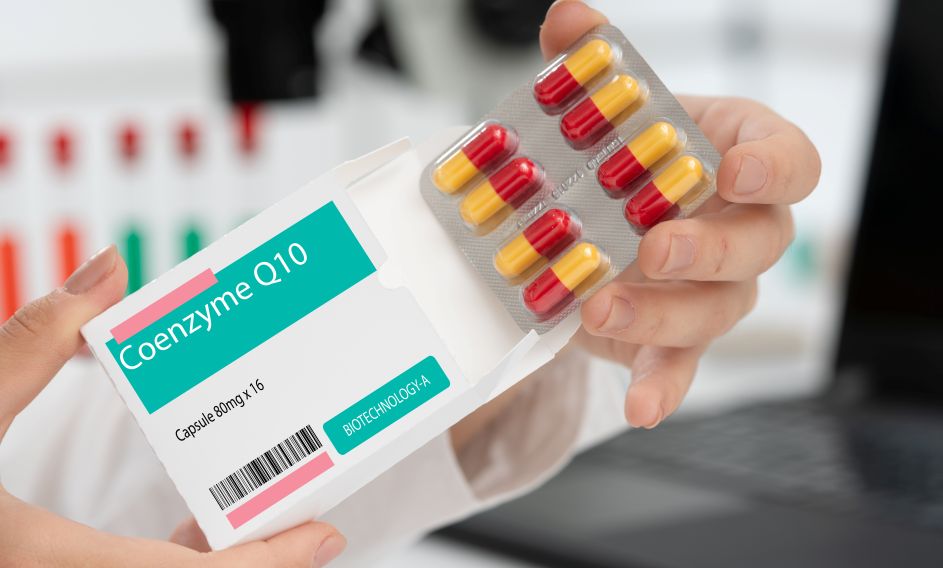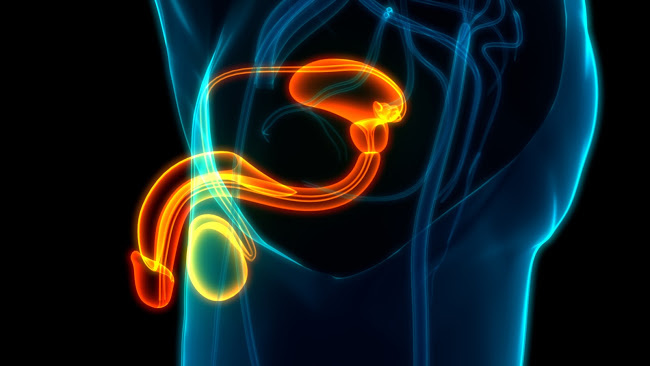
Is Coenzyme Q10 Effective for Fertility?

Coenzyme Q10 (CoQ10) is a naturally occurring antioxidant that helps with cellular functions, like energy production, cell growth, and slowing cellular death. Essentially, CoQ10 is affected by increased levels of what’s called oxidative stress (OS), which makes a high amount of reactive oxygen species (ROS), which are super reactive cells with no partner cell to keep them in check.
Normally, a small amount of ROS is okay, but an abnormally large amount can cause a lot of cell damage. OS (and therefore ROS) may be triggered by aging, inflammation, various toxins, and certain diseases. As people age, levels of CoQ10 begin to decrease, creating more opportunity for cellular damage and death, reducing the protective role it has over bodily functions.
Historically, CoQ10 has been leveraged for preventing and reducing the negative effects of heart conditions, migraines, diabetes, and Parkinson’s disease. Typically, it is available as an over-the-counter supplement, but can also be available in gel, syrup, or intravenous (IV) forms.
Fertility Facts
More recently, CoQ10 has been evaluated for its usefulness in fertility treatments and in vitro fertilization (IVF), where an egg is fertilized with sperm in a lab and then transferred back to the uterus in hopes that the individual becomes pregnant. In the case of fertilization, CoQ10 helps prevent cellular death of important follicles and tissues that create a more fertile environment for the egg, and provides nutrients needed to strengthen the protective coating (membrane) of sperm. Both of these deaths (follicular and tissue) are typically because of excessive ROS.
Infertility affects roughly 15% of couples worldwide, with around half of these cases involving male infertility. For men, it is understood that CoQ10 helps improve seminal fluid quality, which is the liquid sperm travels in to reach the egg. Seminal fluid contains proteins which help strengthen the sperm membrane. In fact, low levels of natural CoQ10 have been are associated with conditions such as varicoceles and oligozoospermia (Salvio et al., 2021), both of which affect the viability and amount of sperm. However, this study’s main focus was oligozoospermia, which is, simply put, a low sperm count.
For women, CoQ10 is thought to help repair follicle damage from a process called ovarian aging. This is essentially a gradual decline in the quality and quantity of eggs, making it harder to become pregnant. Ovarian aging typically happens naturally with human aging but is beginning to occur more and more with younger people. CoQ10 has been used in fertility clinics prior to IVF cycles in an attempt to improve egg quality, and with effective results in some studies. It’s also believed that the supplements can assist with endometriosis (tissue similar to the lining of the uterus grows outside the uterus, causing pain, and inflammation) and polycystic ovarian syndrome (PCOS; the ovaries produce excess male hormones and often develop small cysts, leading to irregular periods, acne, and excess hair growth), both of which can contribute toward infertility.
Safety Concerns
A serious concern that has circled the internet is whether or not it is safe to consume CoQ10 as a supplement to other medical interventions. Although the supplement is not FDA-approved as a direct treatment for disease, it is available over the counter at most pharmacies or drug stores. CoQ10 is generally well-tolerated but may cause some general side effects like nausea or diarrhea. However, these symptoms are usually not severe and generally do not require medical intervention. Because it is a naturally occurring substance, even high doses are tolerated well by the body.
Key Points
- CoQ10 is a safe dietary supplement sold over the counter that may support fertility and other chronic conditions such as heart disease or Parkinson’s.
- CoQ10 works to grow cells and block cellular death, providing healthier uterine tissue for embryo (eggs fertilized by sperm) implantation, and protects sperm from DNA damage.
References:
- Lin, G., Li, X., Jin Yie, S. L., & Xu, L. (2024). Clinical evidence of coenzyme Q10 pretreatment for women with diminished Ovarian Reserve undergoing IVF/ICSI: A systematic review and meta-analysis. Annals of Medicine, 56(1). https://doi.org/10.1080/07853890.2024.2389469
- National Institute of Diabetes and Digestive and Kidney Diseases. (2012). Coenzyme Q10. In LiverTox: Clinical and Research Information on Drug-Induced Liver Injury [Internet]. essay. Retrieved August 5, 2025, from https://www.ncbi.nlm.nih.gov/books/NBK603562/.
- Nie, X., Dong, X., Hu, Y., Xu, F., Hu, C., & Shu, C. (2023). Coenzyme Q10 stimulate reproductive Vatality. Drug Design, Development and Therapy, Volume 17, 2623–2637. https://doi.org/10.2147/dddt.s386974
- Salvio, G., Cutini, M., Ciarloni, A., Giovannini, L., Perrone, M., & Balercia, G. (2021). Coenzyme Q10 and male infertility: A systematic review. Antioxidants, 10(6), 874. https://doi.org/10.3390/antiox10060874
- Shang, Y., Song, N., He, R., & Wu, M. (2024). Antioxidants and fertility in women with ovarian aging: A systematic review and meta-analysis. Advances in Nutrition, 15(8), 100273. https://doi.org/10.1016/j.advnut.2024.100273





